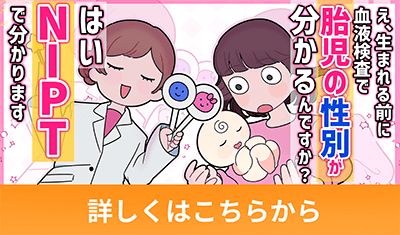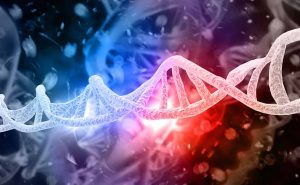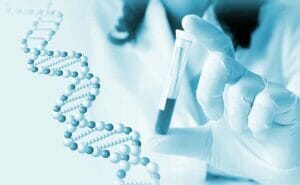Learn about the educational options available for children with Down Syndrome (Trisomy 21), including regular classes, resource rooms, special support classes, and special support schools. Explore the benefits of genetic counseling and after-school day services for children with disabilities.
Summary of This Article
Education and therapy for children with Down syndrome, who grow and develop relatively slowly, require considerations tailored to their development and disabilities. There are necessary therapies and education for each age group, from infants to high school students. Additionally, there are facilities similar to after-school care programs for children with disabilities, known as “After-School Day Services,” which they can attend after school hours or during long vacations. Postnatal treatment, therapy, and social support for children with Down syndrome are well-established, and various supports can be received from the national and local governments.
What is Down Syndrome
Down syndrome, also known as trisomy 21 or Down’s syndrome, is a chromosomal abnormality. Down syndrome occurs when there are three copies (trisomy) of chromosome 21 instead of the usual two.
It is the most common chromosomal abnormality, with around 2,200 babies born with Down syndrome each year.
Children with Down syndrome have the following characteristics:
・Low muscle tone
・Slower physical development
・Delayed mental development
・Distinctive facial features, such as the eyes
・Frequent complications involving the heart and respiratory system
Current medical science cannot cure the chromosomal abnormalities that cause Down syndrome. However, research into various treatment methods is ongoing, and clinical trials are being conducted, which holds promise for medical advancements.
There are also concerns about whether children with Down syndrome will die before reaching adulthood or become burdens on society as adults. Currently, treatment, medical care, and educational systems for children with Down syndrome are well-established, and some individuals with Down syndrome are employed. In the latter part of this article, we explain education for Down syndrome children, based on materials from the Ministry of Health, Labour and Welfare and the Ministry of Education, Culture, Sports, Science and Technology. We aim to address your concerns and questions clearly and concisely. Please refer to it for more information.
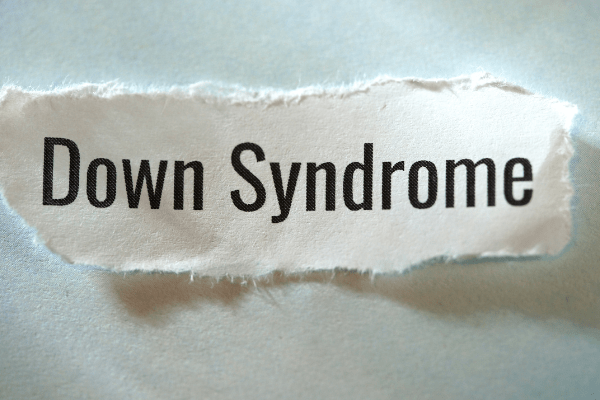
When is Down Syndrome Diagnosed?
When is Down syndrome diagnosed? In the past, chromosomal testing was performed when Down syndrome was suspected due to physical characteristics or complications observed after birth, and a diagnosis of Down syndrome was made. Recently, there has been an increase in cases where Down syndrome is diagnosed through prenatal testing. We will explain each case in detail.
Cases Diagnosed Before Birth
With the advancement of medical science, the number of cases where Down syndrome can be diagnosed before birth has increased. Among these, prenatal tests such as NIPT (Non-Invasive Prenatal Testing) are gaining popularity because they can be performed without burdening the mother and baby during early pregnancy through ultrasound and blood tests. More mothers are opting for NIPT (Non-Invasive Prenatal Testing). Ultrasound and NIPT (Non-Invasive Prenatal Testing) are called non-diagnostic tests. They examine the probability of a Down syndrome suspicion. NIPT (Non-Invasive Prenatal Testing) alone can only indicate the suspicion of Down syndrome. Therefore, a definitive diagnosis requires tests like chorionic villus sampling or amniocentesis.
In 2016, 20% of children born in Japan with Down syndrome were diagnosed through prenatal tests such as NIPT (Non-Invasive Prenatal Testing).
Cases Diagnosed After Birth
80% of children with Down syndrome are diagnosed after birth. Children with Down syndrome have the following characteristics:
・Small head
・Flat face, upward-slanting eyes, low nasal bridge
・Small and low-set ears
・Large tongue, open mouth
・Weak muscle tone, floppy appearance
・Poor feeding
Additionally, they often have congenital heart disease and respiratory or other internal organ conditions. When these physical characteristics or clinical symptoms suggest Down syndrome, chromosomal testing is conducted. Chromosomal testing is done using the baby’s blood, and results are available in a few weeks.
Education for Children with Down Syndrome
Education and therapy for children with Down syndrome, who grow and develop relatively slowly, require considerations tailored to their development and disabilities. There are necessary therapies and education for each age group, from infants to high school students. We will explain this in detail.
Nursery School/Kindergarten
Children with Down syndrome develop both physically and mentally at a slower pace overall. Physically, they may experience delays in neck control, sitting up, and walking. Additionally, due to weak muscle tone, they are prone to delays in developmental aspects related to eating, such as swallowing and chewing. Language development also tends to be slow. During this period, developmental delays such as developmental disabilities and intellectual disabilities are common.
Children with Down syndrome attend not only local nurseries and kindergartens but also therapeutic and childcare facilities for children with disabilities. In nurseries and kindergartens, they may spend their time just like other children, or additional childcare staff may be assigned to their class according to the child’s condition.
Furthermore, there are facilities called “therapy” centers for children with disabilities that promote growth and development in areas such as eating, daily life, language comprehension, and communication. Specifically, these are referred to as therapy centers, child development support centers, child development support offices, and medical-type child development support centers. Research has shown that providing appropriate therapy before school age significantly influences growth and development later in life. The types of facilities available vary by municipality. The support a child can receive depends on the nature and degree of their disability or developmental delay, so please check the websites of local governments or facilities for more information.
Elementary School
For elementary school, there are four options based on the child’s condition:
・Regular class
・Resource room
・Special support class
・Special support school
In regular classes, children who do not have Down syndrome study alongside other children at the local elementary school. These classes are also called general or regular classes and are intended for children with relatively mild intellectual or developmental disabilities, who are somewhat independent in their daily lives. The resource room is a classroom for children with relatively mild Down syndrome who attend regular classes but receive individualized instruction tailored to their unique needs. Special support classes, also known as special needs classes, are for children requiring individual attention, located within local elementary schools. These classes are attended by children not only with Down syndrome but also those needing physical or mental support. The learning content in these classes is tailored to each child, though some classes, like physical education and school events, are attended together with children in regular classes. Special support schools cater to children needing individualized instruction tailored to their growth and development. The number of students is smaller, and each teacher is responsible for fewer children, allowing for more individualized attention. In addition to general subjects, these schools focus on daily living skills and activities necessary for social living and work.
The school placement for children with Down syndrome needs to be determined based on the child’s condition. Parents may worry about how to make this decision and what the future holds for their child. The Ministry of Education, Culture, Sports, Science, and Technology defines the process for deciding the school placement for children with disabilities as follows:
“It is fundamental to respect the opinions of the individual and their guardians as much as possible and to build a consensus on the educational needs and necessary support. The municipal board of education makes decisions based on a comprehensive perspective that includes the condition of the disability, the required support, and professional educational views.”
Source: Ministry of Education, Culture, Sports, Science, and Technology, Regarding the Determination of School Placement for Children with Disabilities.
The board of education determines the appropriate school through health checkups at school enrollment and individual interviews with parents. The school placement for children with Down syndrome varies depending on the local educational system and support framework. Consult thoroughly with the board of education to decide the best school for your child.
Middle School
In junior high school, there are also four types: regular class, resource room, special support class, and special support school. As children grow, individual differences in growth and development tend to become more significant. It is not uncommon for children who were in regular classes in elementary school to transfer to resource rooms, special support classes, or special support schools. Consult with teachers and the board of education to consider a path that suits the child’s characteristics.
High School
In high school, unlike the compulsory education period of elementary and junior high school, there are not many high schools with special support classes or additional staff. Additionally, the academic gap between children with Down syndrome and those without it becomes significant. As a result, many children attend special support schools. These schools focus on individualized instruction tailored to the child’s abilities and characteristics. For instance, they cater to children aiming for independence in daily life, as well as those aiming for further education or employment. Providing life skills support and preparing for post-graduation paths towards independence is one of the important aspects of high school education.
After-School Day Services
After-school day services are facilities established under the 2012 amendment to the Child Welfare Act. They are intended for school-age children from 6 to 18 years old, and if necessary, they can attend until they turn 20. These facilities are similar to after-school care for children with disabilities, where they attend after school or during long vacations. After-school day services provide training for independent living, creative and work activities, and a place for children to spend their time. The facilities, purposes, services offered, scale, and availability vary by facility. Check with the local municipal office, consult with the teachers at schools or kindergartens, and listen to the feedback from local parents to consider utilizing a facility that suits your child’s needs.

Preparing for a Child with Down Syndrome
During pregnancy or after childbirth, many people may feel anxious or have questions if they find out that their child may have or has Down syndrome. Here, we introduce two ways to prepare for welcoming a child with Down syndrome. Please take these into consideration.
Preparations Before Birth
The probability of having a child with Down syndrome increases with the mother’s age. In cases of advanced maternal age, prenatal tests such as NIPT (Non-Invasive Prenatal Testing) are more frequently performed. Knowing the likelihood of having a child with Down syndrome allows parents to prepare in advance for the child’s needs. Beyond the decision of whether to continue the pregnancy, it is crucial to ensure an environment where the child can receive appropriate care after birth. Children with Down syndrome are said to have a higher likelihood of being born with complications affecting the heart and respiratory organs. Even without complications, they may have weak muscle tone and difficulty feeding. Pregnant women may need to transfer to a medical facility with a NICU (Neonatal Intensive Care Unit) to ensure the child receives proper treatment immediately after birth. Depending on the child’s condition, surgery might be required right after birth, so it is important to consult with a doctor and choose the hospital carefully.
Agencies for Consultation After Diagnosis
If you find out that your baby has Down syndrome, don’t try to handle it all by yourself or within your family. In addition to your obstetrician, nurse, and midwife, there are many resources available for consultation. The most recommended option is “genetic counseling.” In genetic counseling, doctors and specially trained genetic counselors explain the causes and characteristics of the baby’s chromosomal abnormalities, as well as the likelihood of recurrence in future children, based on medical knowledge. They also provide psychological and emotional support for your family.
At Hiro Clinic NIPT, board-certified obstetricians and gynecologists, prenatal consultation pediatricians, and clinical genetic specialists are available for appointments and counseling. If you wish to use this service, please consult with your attending doctor or nurse. Please note that at Hiro Clinic NIPT, consultations are only available for those who have undergone prenatal testing. Pre-test consultations are not provided, so please be aware of this policy.
Conclusion
The possibility of Down syndrome can be determined before birth through NIPT (Non-Invasive Prenatal Testing). As NIPT is a screening test, a definitive diagnosis requires amniocentesis or chorionic villus sampling. If you want to know the likelihood of Down syndrome before birth, consider undergoing NIPT. If Down syndrome is suspected after birth without prior NIPT, a chromosomal test will provide a definitive diagnosis.
In any case, there are established treatments, early interventions, and social support systems for children with Down syndrome, and various forms of support are available from the national and local governments.
While there may be many concerns and questions, please do not hesitate to consult with your doctor, midwife, nurse, or genetic counselor.
- Japan Down Syndrome Society
- Ministry of Health, Labour and Welfare – Life with Trisomy 21
- Ministry of Health, Labour and Welfare – 2nd Expert Committee on Prenatal Testing including NIPT – Issues and Future Prospects of NIPT from a Pediatrician’s Perspective
- Yokohama Project – Life of Children with Down Syndrome (Infancy, School Age, Junior High and High School)
- National Center for Child Health and Development – Down Syndrome (Down’s Syndrome)
- Ministry of Education, Culture, Sports, Science and Technology – 5. Deciding on School Placement for Children with Disabilities
Learn about the educational options available for children with Down Syndrome (Trisomy 21), including regular classes, resource rooms, special support classes, and special support schools. Explore the benefits of genetic counseling and after-school day services for children with disabilities.
Article Editorial Supervisor
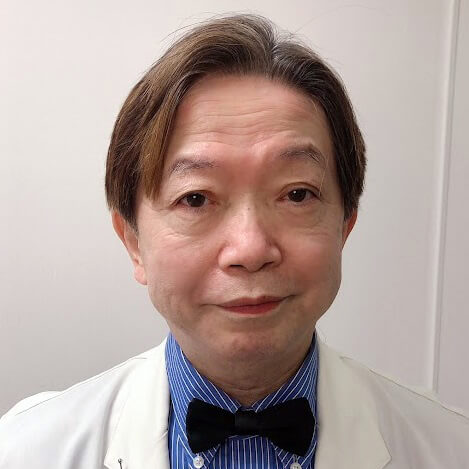
Dr. Masahiko Ito
Former Professor, University of Health and Welfare, Former Dean, Kashiwa Rehabilitation School, University of Medical Innovation, Member, Japanese Society for Gene Therapy and Japanese Society for Gene Research, etc.
Brief History
1974 – Entered the National Defense Medical College
1979 – Externship at the Department of Pediatrics, Faculty of Medicine, University of Sydney, Australia (Royal Alexandria Children’s Hospital)
1980 – Graduated from National Defense Medical College (1st class). Joined the Department of Pediatrics, National Defense Medical College
Worked at the Department of Pediatrics, National Defense Medical College Hospital, Self Defense Forces Central Hospital, Department of Neonatology, Hokkaido General Health Center for Children, and Mishuku Hospital of the National Public Service Mutual Aid Union
1989 – Research Fellow, Harvard Medical School, USA; Clinical Fellow, Tufts University School of Medicine, USA
1993 – Lecturer of Pediatrics, Saitama Medical College Junior College of Saitama Medical School
1994 – Lecturer of Pediatrics, Saitama Medical College
1997 – Associate Professor of Pediatrics, International University of Health and Welfare, Japan, working in the Department of Pediatrics, Sanno Hospital, Japan
2006 – Special Appointment Professor of Pediatrics, International University of Health and Welfare, International University of Health and Welfare (Pediatrics)
2008 – Honorary Director of Ihatove Hospital (Iwate Rosai Hospital)
2009 – Chairman, Hasuda Yotsuba Hospital, Kokoro no Kizuna Medical Corporation
2010 – Chairman, Ginza Cosmetic Surgery Clinic, Ginbikai Medical Corporation
2011 – Director of Shinkawa Hospital, Tsuruyokai Medical Corporation
2011 – Director of Chiba-Kashiwa Rehabilitation School of Medical Sosei University Educational Corporation
2014 – Director, Niigata Chuo Dialysis Clinic, Aoi Kai Medical Corporation
2016 – Deputy Director, Niigata Seiro Hospital, Aoi Kai Medical Corporation
2017 – Director, Higashi Katsushika Hospital, Fukujukai Medical Corporation
2018 – Director of International Department, AOI International Hospital, Aoi Kai Medical Corporation
Certifications
Doctor of Medicine
Registered as a care support specialist (Care Manager)
Board Certification in Allergology, Japanese Society of Allergology
Certified Industrial Physician by the Japan Medical Association
Board Certification in Pediatrics, Japan Pediatric Society
Passed the Japanese Society of Laser Medicine Medical Specialist Examination
Councilor of the Japanese Society of Pediatric Allergy
Councilor, Japanese Society of Pediatric Psychosomatic Medicine
Councilor, Japan-U.S. Medical Exchange Foundation
Councilor, Japan Internet Medical Association
Board member of the Japan Society for Computer Science
Chairman of the Board of Directors, Nightingale Spirit League
Chairman of the Board of Directors, NPO Defense Health Career Net
Advisor to the Medical Department of Kurokane Prison, Ministry of Justice, and other positions or activities
 中文
中文







